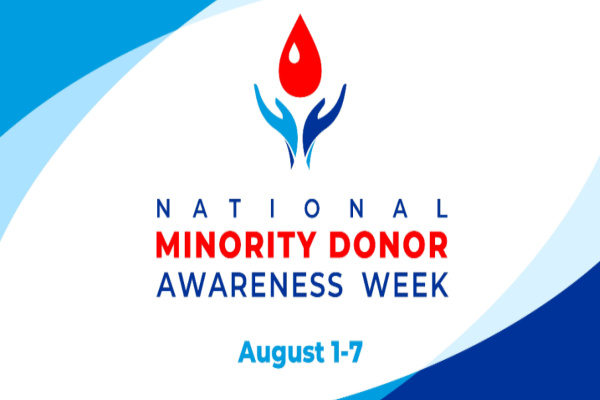National Minority Donor Awareness Week is the first week of August each year, and in fact, now the entire month (NMDAM) is dedicated to this nationwide observance honoring the generosity of multicultural donors and their families, while also underscoring the critical need for people from diverse communities to register their decision to Donate Life as organ, eye and tissue donors.
According to Donate Life California, although it is possible for a candidate to match a donor from another racial or ethnic group, transplant success rates increase when organs are matched between members of the same ethnic background. Consequently, a lack of organs donated by multicultural populations can contribute to longer waiting periods for transplantation.
Why Minority Donor Awareness Matters
One of the reasons why minority donor awareness is so important is over half of those on the organ transplant waiting list are minorities. At the same time, only just over 30% of donors are minorities. Additionally, over 70% of those waiting for a lifesaving kidney transplant are of a minority background.
We’re hoping to increase minority donor awareness to answer questions different individuals have about becoming a registered organ, eye and tissue donor. And to share with them the impact their choice to become a donor can become.
For more information on minority donor awareness and how the donation community celebrates National Minority Donor Awareness week each year visit the Association Multicultural Awareness in Transplant who sponsors the event each year.
Organ Transplant and Minority Donor FAQ’s*
- More than 69,000 minority patients are currently registered on the U.S. organ transplant waiting list.
- Minorities make up 36 percent of the U.S. population and comprise 58 percent of individuals on the U.S. transplant waiting list.
- Minorities represented 44 percent of people who received organ transplants in 2015.
- Minorities represented 32 percent of living and deceased organ donors in 2015.
- Currently, there are 1,097 American Indian/Alaska Natives in the US waiting for an organ transplant. In 2016, 231 American Indians received a life-saving transplant from a generous donor.
- Currently, there are 36,388 African Americans waiting for a lifesaving transplant. In 2016, African Americans accounted for 1,569 donors that gave the gift of life.
- In 2016, 1, 863 Asians and Pacific Islanders received a lifesaving transplant from a generous donor. To date, there are 10,787 Asians and Pacific Islanders waiting for an organ transplant.
- Currently, there are 24,143 Hispanics waiting for a lifesaving transplant. In 2016, Hispanics accounted for 1,311 that gave the gift of life.
- Approximately 85 organ transplants take place every day in the United States.
- Nearly 35,000 patients began new lives in 2017 thanks to organ transplants.
- More than one-third of all deceased donors are 50 or older and nearly 8% are 65 are older.
- Sadly, an average of 21 patients die every day while waiting for a transplant, simply because the organ they needed does not become available in time.
* Statistics on Minority Donor Awareness are from the Organ Procurement and Transplantation Network. You can find updated current here.
Did You Know?
- Anyone can be a potential donor, regardless of age or medical history.
- A single donor can save or heal the lives of more than 50 people through organ, eye and tissue donation.
- Every major religion in the United States supports organ, eye and tissue donation as one of the highest expressions of compassion and generosity.
- There is no cost to the donor’s family or estate.
- An open casket funeral is possible for organ, eye and tissue donors.
What You Can Do
1. If you haven’t already, register to be an organ, eye & tissue donor.
2. Start an eCampaign to encourage your friends and family to sign up as organ & tissue donors.
3. #DONATIONISCOLORBLIND. Use social media and share about minority donor awareness including stats & facts that you think will resonate with your social media community and inspire them to register as organ, eye and tissue donors.
—
Photo Credit: dsnovik / Shutterstock.com
